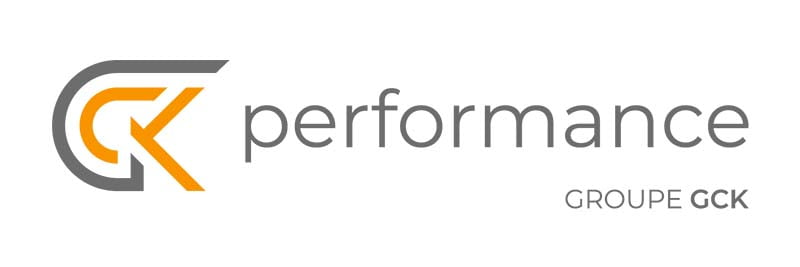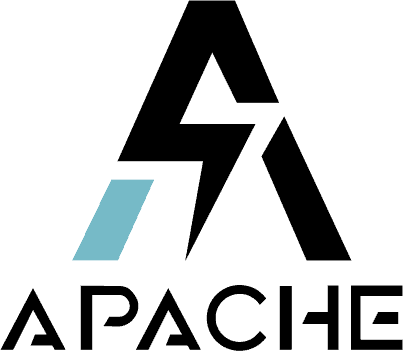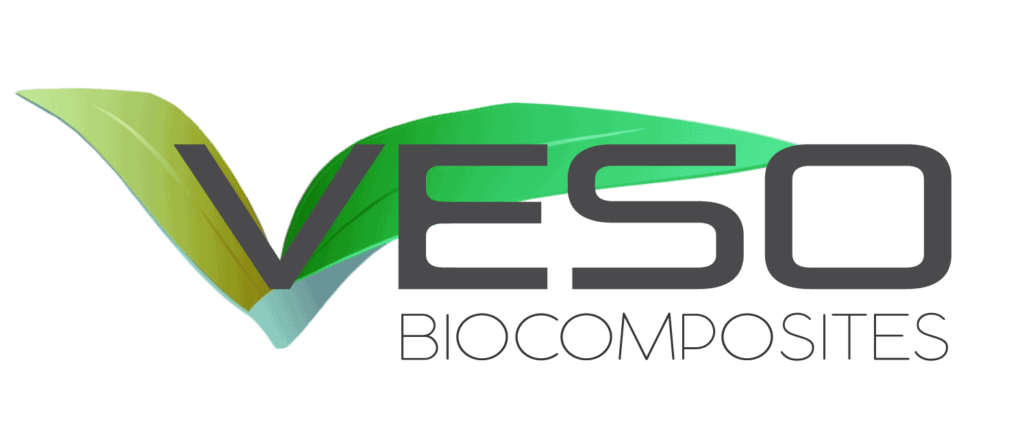BIOBASED COMPOSITE BODYWORK VEHICLE WINS AFRICA ECO RACE 2024
The 15th edition of Africa Eco Race (AER) ended on January 14th in Dakar, and was the inaugural race of APH-01 vehicles, the new-generation hybrid and sustainable side-by-side vehicles (SSV) developed by Apache Automotive (Belgium), subsidiary of GCK Performance (Auvergne, France).
Due to strong weight limitations and its environmental-friendly approach, APACHE Automotive was aiming for bio-based composite-based bodyworks, and thus chose to collaborate with VESO Concept (Occitanie, France). Once the design of the bodywork parts validated, APACHE Automotive put a total trust in VESO Concept for the part prototyping and production : reinforcements, polymers and processes have been defined by the VESO Concept team using an eco-conception approach, to finally deliver a first prototype and two bodyworks in one year.
Finally, this collaboration has been fruitful, as the SSV driven by G. Paulin (copilot R. Boulanger) ended on the 1st position, while the one driven by P.-L. Loubet (copilot F. Borsotto) won 5 of the 12 race steps. Both results confirm the high-performance levels of vehicles and teams in harsh conditions (desert, rocks, sand, dust…)
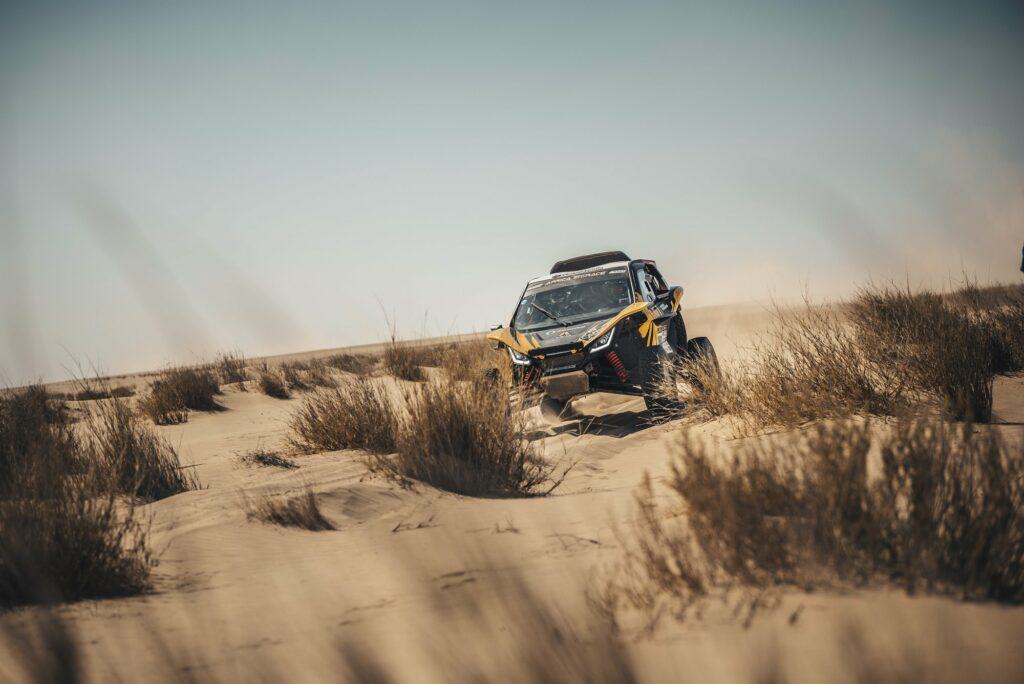
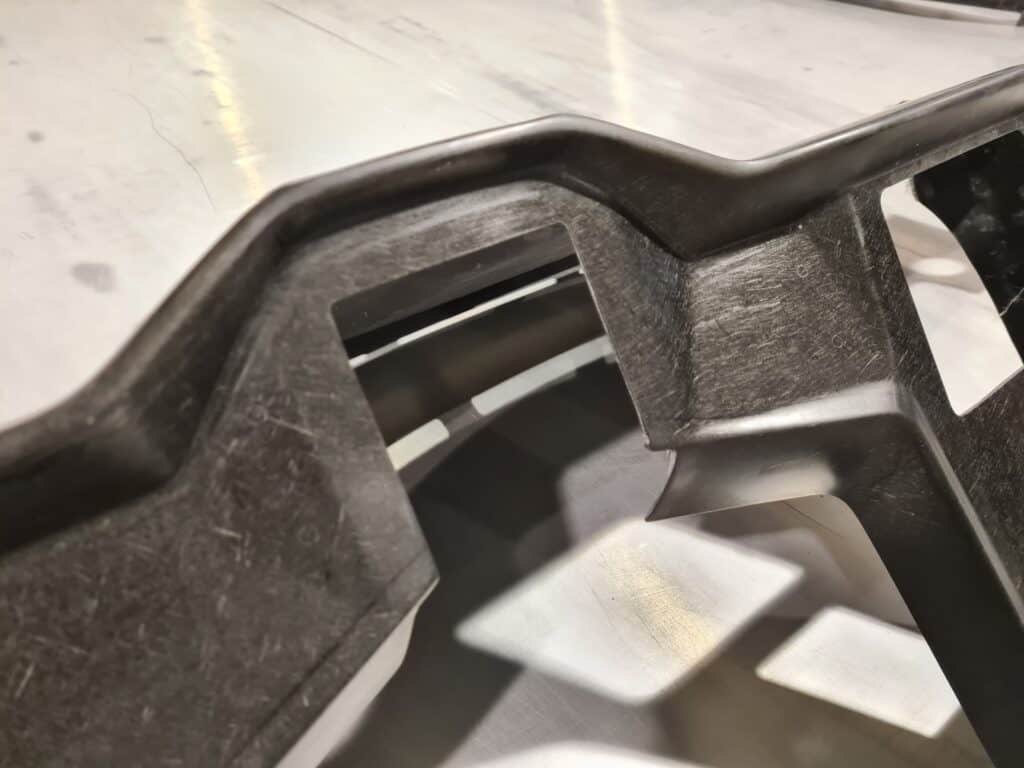
Reinforcements were carefully chosen depending on each part requirements and are of several natures. Recycled carbon mat was for instance used for the dashboard, especially for its aesthetic aspect when integrated as a reinforcement.
Flax was chosen for its very low environmental footprint, but also for its lightness and damping properties, and was used for the bodywork exterior parts. This natural fibre was chosen over the other for its availability under different shapes, as fabrics and mats. Basalt was rather used for interior parts and for the rocker panels, due to its high mechanical properties.
Weights and weaving have been chosen depending on the required properties. When needed, core materials where integrated in the monolithic parts for structural reinforcement. Following the initial eco-friendly strategy, recycled PET foams and cork panels were integrated as core materials. These choices allow to have a 100 % recycled/bio-based reinforcement range.
One of the main challenge was about surface aspect, as VESO Concept took the bet of obtaining porosity-free parts straight out of their moulds, without using gel-coats, in-mould paints or glass veils as surface finishers. This allowed to produce car bodyworks with apparent weaving patterns and minimal weight.
Car bodywork were then dust-protected by a covering by Apache Automotive
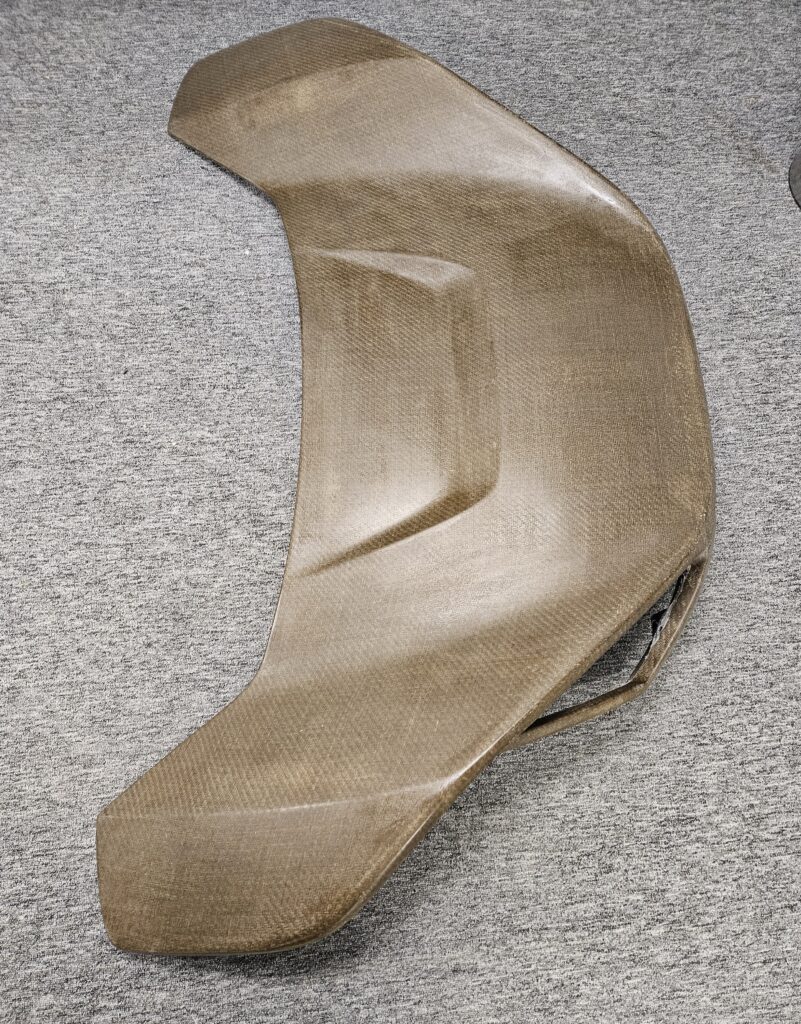
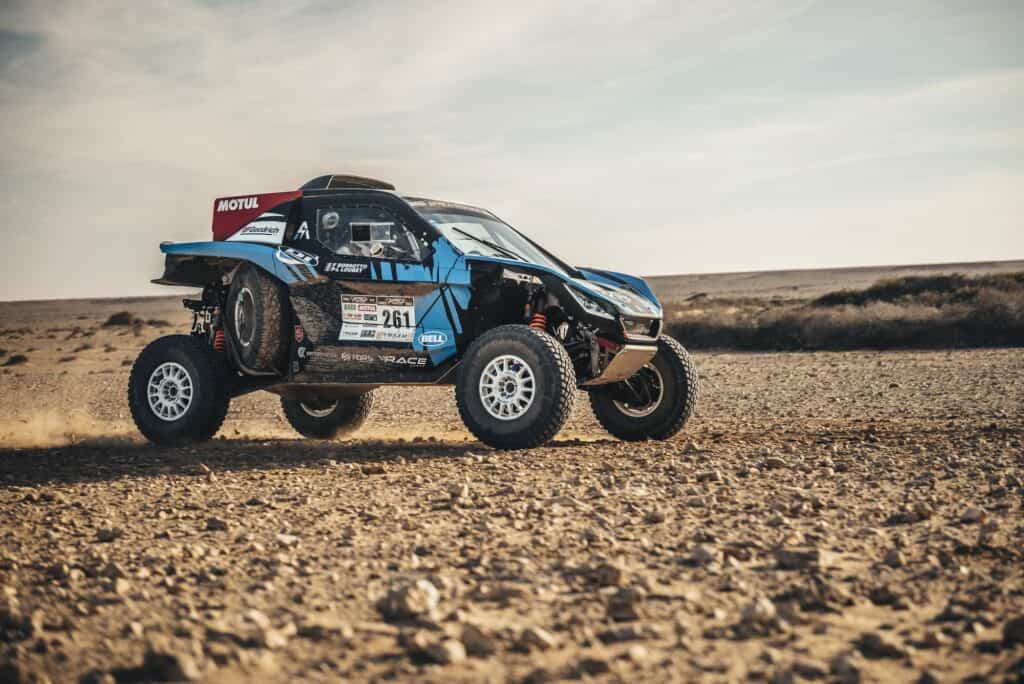
Several bodywork technical performances can be pointed out, such as:
- The multifunctionality of the hoods: front and rear hoods include engine protection, holes for lightening, fenders and spoilers, while being single-part
- A final weight 10 % under Apache Automotive specifications
- French and European suppliers for all raw materials of composite parts
- 3900 kms driven for both APH-01 vehicles in desert conditions, without bodywork part breakage
A Life Cycle Analysis (LCA) has been carried out at the beginning of the project to compare its environmental validity to more traditional composite solutions. This LCA concludes that the VESO Concept solution releases 50 % less kg CO2eq than a traditional carbon/epoxy solution, highlighting the interest of partially biobased/recycled composite materials.
To conclude, this challenging project has been a great opportunity for VESO Concept to produce one of the first composite bodyworks made of bio-based/recycled reinforcements and environmental-friendly polymers. This successful achievement can be seen as an auspicious attempt to open the automotive sector to more sustainable composite solutions
Project duration
12 months
Project budget
Confidential
Partners of the project
